Roya Mahboob is a real life superhero. She faced immense challenges (putting it lightly) to study computer science, establish a startup that brought STEM education to thousands of girls in Afghanistan, and created and brought the Afghan girls’ robotics team to compete against the best in the world - and win. Their stories are beautifully told in the new film Rule Breakers, out March 7 in the United States and Canada.
Rarely does a film leave me inspired, comforted, and ready to take on the world. It’s even more rare when the film is centered on women, and underrepresented women at that. Rule Breakers deftly shows the underestimated strength and intelligence of girls and women, and sheds a much needed light on Afghanistan, particularly over the past 8 years. This film touched so many of my identities - the priceless value of an education, the power of girls and women (and fighting for the freedom and dignity that they all deserve), and to hope and to fight in equal measure.
I had the opportunity to sit down with Roya and learn more about her story, her work, and this film. I hope you find our conversation inspiring, and that you go see the movie this weekend (bring your older kids - Rho watched it with me, and loved it).
Can you tell me about the first time you ever touched and got to experience a computer?
The first time I used computer in Afghanistan was a life-changing experience.
Growing up, technology was very limited, and especially for the girls. We had only one library in Herat to go and get books. If we needed any updated information, we had to write the names of the books and someone had to come from Iran to bring us those books. But what we heard about this magic box in an Internet cafe (that only my brothers and cousins could go there), I insisted to go and when I saw the computer, it was a moment that has changed my life. It opened my eyes to endless possibilities that technology could offer, and the sparks of the passion for learning and innovation. It was a moment that I decided to make technology the center of my career.
And that's how I went to computer science, graduated from computer science, started my company and everything after that started. But that moment stayed with me. I think that was also one of the driving forces behind of my mission to provide access to education, especially technology for the girls in Afghanistan.
Can you share how you started your program to educate girls with technology in Afghanistan?
I started Digital Citizen Fund [after] I graduated from computer science. I found out that there are millions of girls who are like me. [They are] curious, and we wanted to give a new vision to explore the world. So we started Digital Citizen Fund to provide access to education and opportunities for the girls in digital space, financial literacy, and entrepreneurship. We built IT centers inside of the public schools, provided training for the girls ages 12 to 18 to learn the basics: how to work with a computer, learn about coding, financial literacy, Bitcoin, and entrepreneurship. We’ve had 24,000 girls come through our program, build 13 technology and innovation centers, and helped hundreds of women launch their own startups.
Obviously we faced lots of obstacles and challenges, limited resources, social expectations, and the lack of support of the girls in education. Not having female role models in tech and engineering made it more difficult. On top of that, there were also serious threats to their lives. The people who disagreed with our work [felt that we] were trying to change the culture, or they don't see the women in engineering, especially in the field of robotics and mechanical engineering.
These created the challenges and obstacles for us. But I guess that kept us motivated to continue proving that Afghan girls have the same potential as anyone else in the world. For us it was about changing the mindset, breaking the barriers, and showing that a young woman is as a capable if you give them access to opportunities. [With the] right education, they can be the next inventors, problem solvers or leaders in technology. Whenever I see that the passion in these girls’ eyes and their determination to learn despite the risk and the way that they support each other, it reminds me that our work matters.
The robotics team was an opportunity for you to bring these girls to the world stage. Can you share more about what that was like?
In 2017, when First Global asked us to bring a team of teenagers to compete in the first robotics competition, I was not sure because the program that we had wasn't mostly robotics. We had coding and games and designing was part of our program, but not robotics. But the idea got me excited, and we decided to build [an all girls team] to send a message to the girls in Afghanistan but also to the women outside. Our mission was to empower Afghan girls with opportunities in STEM , [as many of them felt or were told] it wasn't meant for them.
We gave an exam from 150, then selected 20, and we applied for six of them to participate in that first competition. Obviously, we faced the challenges of resources, technical issues, visas, and many other obstacles. But the girls were able to go to Washington and compete with other nations. They received a Courageous Award [to honor] the courage that had to participate in that competition. When the girls came back to Afghanistan, they brought the lightness, and we saw the people all over Afghanistan support this team. That was a real spark, and we felt that this is something that we have to continue. We went to more robotics competition, and we won some of those competitions and received some awards for the work that we do. We have seen that the Afghan community has changed. The perception of the women's ability in science and engineering changed. And that was a victory for us, not only for the Afghan girls but also for the women in Afghanistan.
It wasn't only a few girls. None of this could have been possible without the incredible team working behind the scenes, from the engineers and female mentors to the communities who support our program. This journey always have been a collective effort. I'm grateful for every person who believed in our mission and supported us. Many of these people never got the credit for the work they did and prefer to stay behind the scenes. But without them, I don't think that we would be able to have the success that we do now.
Obviously, Afghanistan has gone through a lot in recent years. particularly in the past five. How has your work continued with the regime change, with the rights of so many girls and women being taken away by the current government?
The loss of the rights of women in Afghanistan, especially regarding education, is heartbreaking. What keeps me and many other women in Afghanistan motivated is we believe that we are not defined by the circumstances we are in.
We know that the fight for equality is long and difficult, but it is not impossible.
After the fall of Kabul, we have seen women protest it and they continue different ways of resistance. They continue their education online. They do homeschooling programs.
These women that I know them are incredibly resilient and they refuse to hold back.
We need to continue our fight for a better future. And our mission is that to make sure that these girls have the same opportunity like I did, because we all know that the power of education can transform their lives, sorry for the word. When you see the film, you see the golden era of Afghanistan. The film is a reminder of what Afghan women are capable of if you give them the opportunity and access to education.
This regime is a gender apartheid regime, and we need to fight against of this regime to make sure that the women in Afghanistan have access to their rights.
The hope for the future is what is keeps us going, no matter the obstacles.
Remember that the current population of Afghans are different than the 1990s. More than 63% of the population are [in their twenties] and most of them grew up with democracy, access to information, freedom of speech, and with dignity and human rights.
What was it like to see your story come alive on screen?
Seeing our stories on the big screen has been both overwhelming and humbling. It's been a deeply personal journey and watching our struggle, the doubts, the moments of victory and excitement and determination unfold in front of the audience is a lot.
The director has done a great job to not only capture the technical challenges we faced, but also this emotional roller coaster of experience along the way.
It serves as a powerful reminder of the strength of Afghan women and men, in the face of adversity. I hope that this film brings awareness to our cause and the importance of providing access to opportunity and education for the girls no matter where they are.
Once people watch this film, how can they take action to support the girls in Afghanistan?
This film is not just about robotics or technologies, it's breaking down the barriers that hold the girls back and showing the world that what girls are capable of, of achieving greatness if they have access to technology and education.
I want that people to be inspired by our journey and recognize that the challenges that we face as women in Afghanistan are not unique. But this film also is a promise to Afghan girls, that their talent, their resilience, and their determination are not gonna be forgotten and we will continue to fight for their rights to education.
I hope that people who want to help will talk about this widely, mentor girls online, or support organizations who work in Afghanistan. I hope that this film can bring attention to what we lost, how amazing and how beautiful it was and what we don't have today.
I'm currently working focusing on expanding our work at the Digital Citizen Fund, particularly the program teaching STEM education, digital literacy for women in Afghanistan. We want to extend the program to other countries.
We also provide food distribution and emergency services, provide scholarships related to STEM and online education.
I also working on our new initiative, which we are going to launch hopefully by June-July. Our first product is called Rabirobot, which helps kids (and especially young girls) learn about coding and STEM, and we are very excited about that.
Rule Breakers is in theaters in the United States and Canada on March 7th. You won’t want to miss this film.


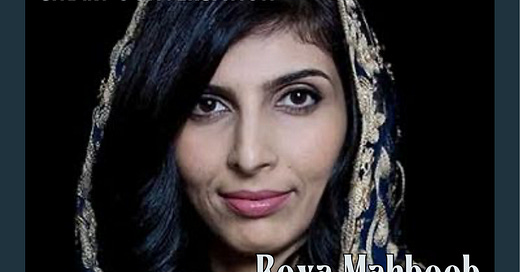


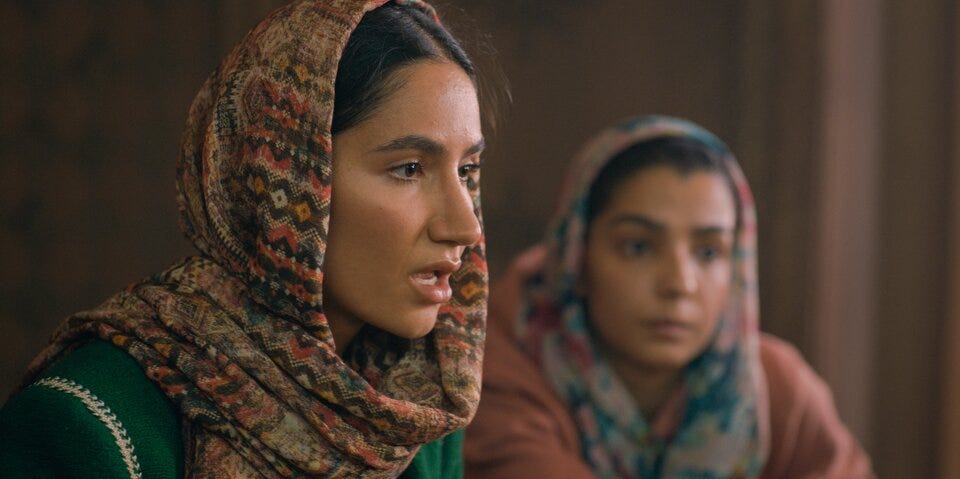
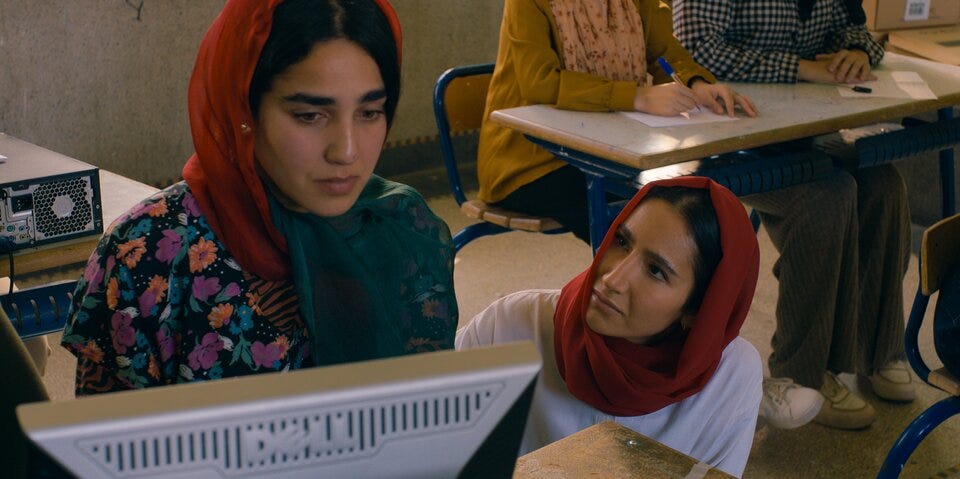
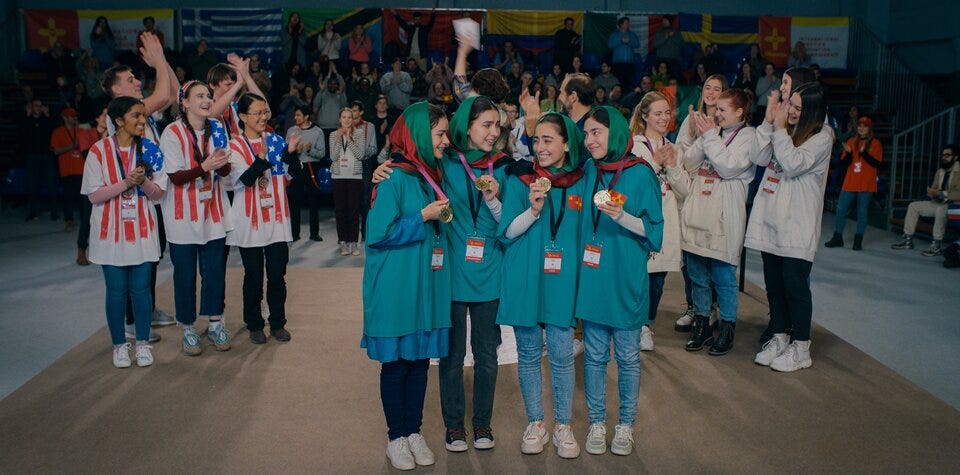
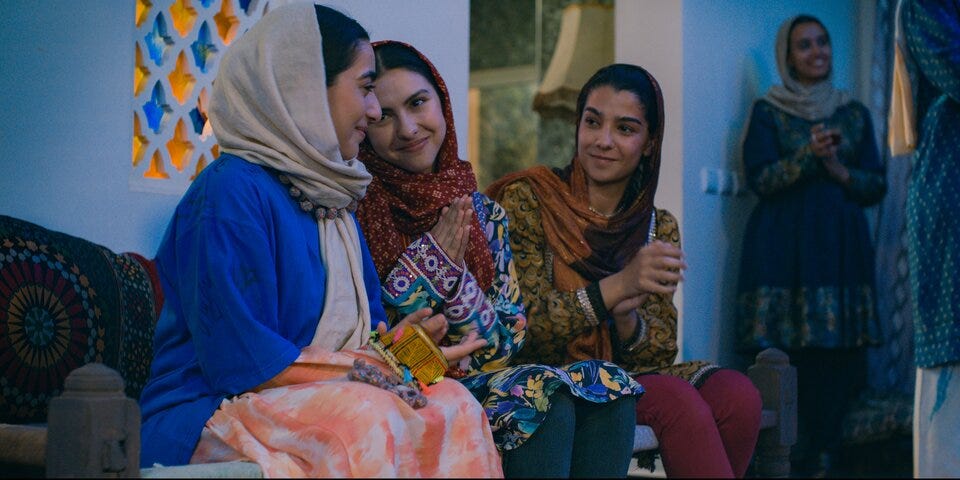

Share this post